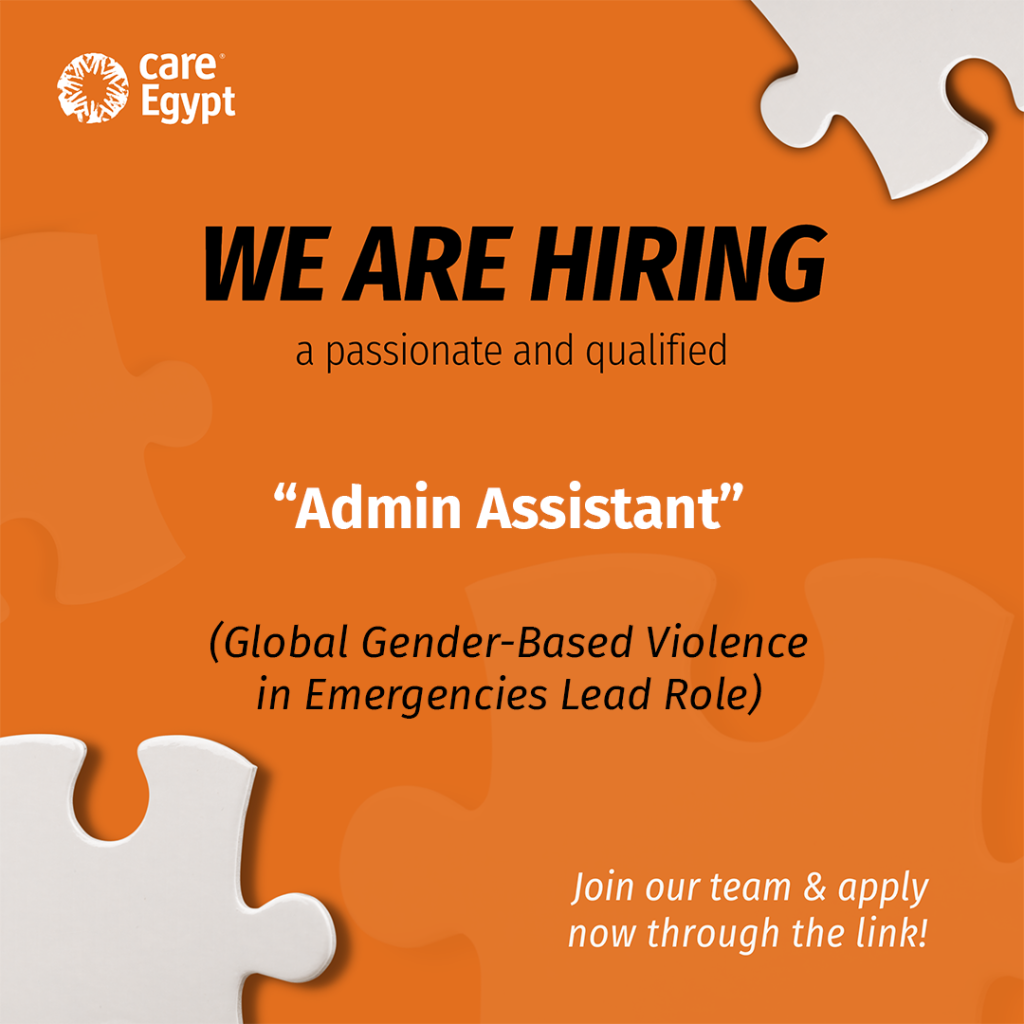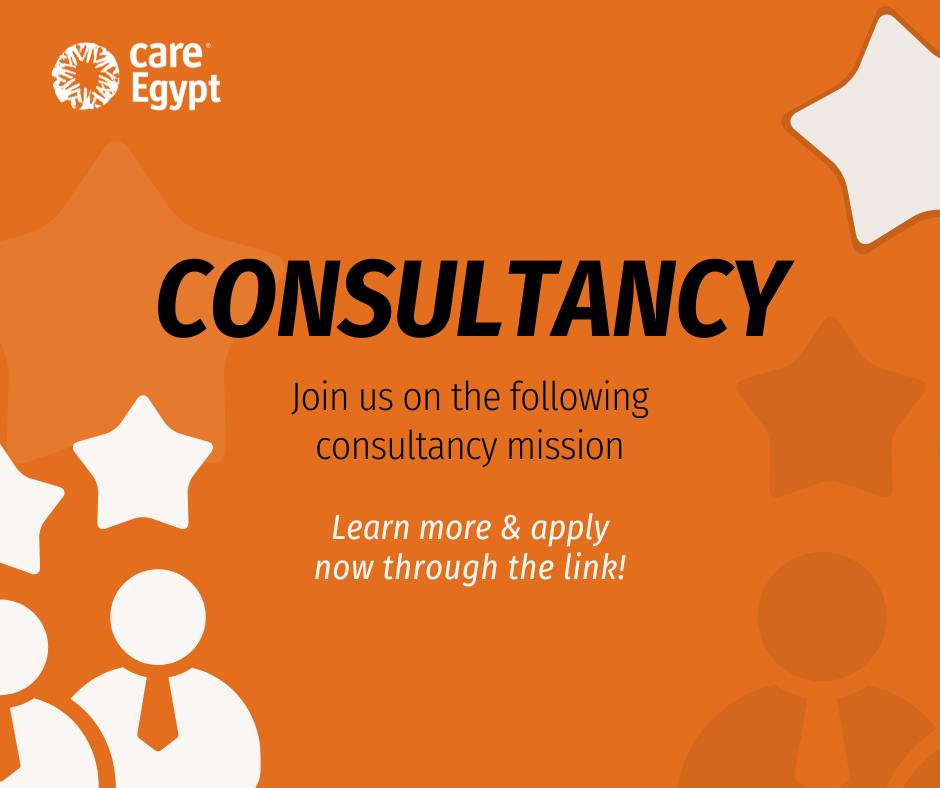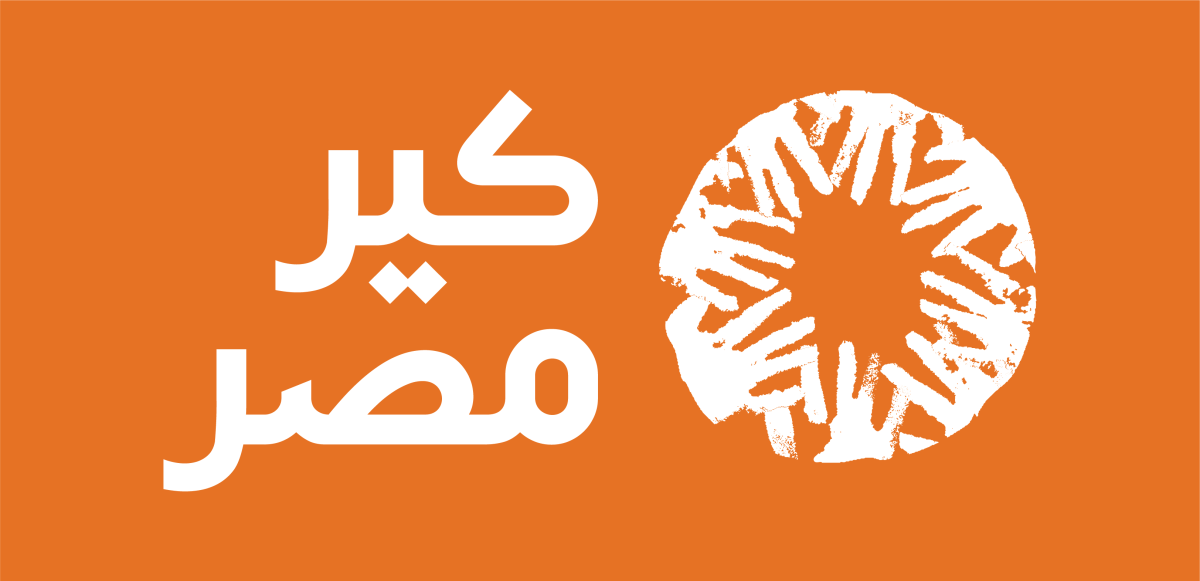
For interested candidates in volunteering opportunities, please fill in the application form:

For interested candidates in volunteering opportunities, please fill in the application form:

CARE Egypt welcomes applications for the following position(s) from motivated and committed professionals seeking to improve the conditions of the poor and marginalized, and those with strong core values and vision. CARE conceptualizes diversity in the broadest sense, going beyond regular classifications of gender, race, and nationality. CARE has a prevailing culture that mandates the principles and practice of equal employment opportunity and excellence through diversifying its workforce in a way that strengthens the overall organization and ensures gender equity. Applying the core values (Transformation, Integrity, Diversity, Equality and Excellence) is of the main strengths either among the staff or with our partners and stakeholders. Additionally, CARE values the global Child Protection policies and strictly apply all its related measures to ensure that our staff, programs and operations ‘Do No Harm’ to children.
CARE has an excellent compensation and benefit package, with good career and staff development opportunities. CARE strongly encourages applications from women, and people with special needs as Care is an equal opportunity employer.
CARE’s vision is to seek a world of hope, inclusion, and social justice; where poverty has been overcome and people live in dignity and security. CARE puts gender equality, diversity, and inclusion at the center of all we do because we know that we cannot overcome poverty and social injustice until all people have equal rights and opportunities. CARE’s Vision 2030 places gender equality at the heart of our ambitions and it radiates through all our work at the level of individuals, teams, the organization, our programs and our partnerships.
Vision 2030’s Gender Equality Impact Area Strategy (GEIAS) consists of three sub-areas: 1) Gender-based Violence in emergencies (GBViE) and in Development, 2) Women’s Voice and Leadership (WVL) and, 3) Education. CARE Egypt Foundation leads CARE International’s GBV in emergencies’ (GBViE) globally, while CARE Caucasus leads on WV&L (Education is led by CARE USA, while the overall coordination of the GEIAS is co-led by CARE USA and the CI Secretariat).
لدى كيرمصر ثقافة سائدة تفرض مبادئ وممارسات تكافؤ فرص العمل والتميز من خلال تنويع قوتها العاملة بطريقة تقوي المنظمة ككل وتضمن المساواة بين الجنسين. ويعد تطبيق القيم الجوهرية (التعلم والنزاهة والتنوع والمساواة والتفوق ) من نقاط القوة الرئيسية سواء بين الموظفين أو مع شركائنا ومختلف الجهات المعنية. كما تتبنى كير مصر مفهوم التنوع وقبول الأخر . بالإضافة إلى ذلك ، تقدر كير سياسات حماية الطفل العالمية وتطبق بصرامة جميع التدابير ذات الصلة لضمان أن موظفينا وبرامجنا وعملياتنا “لا تؤذي الأطفال”. تطبق كير مصر سياسة عدم التسامح مطلقا تجاه سوء المعاملة والاستغلال الجنسي أو التحرش في مكان العمل
كير مصر لديها حزمة مزايا ممتازة ، مع فرص تطوير وظيفي جيدة للموظفين. وتشجع بشدة الطلبات المقدمة من النساء والأشخاص ذوي الاحتياجات الخاصة وذلك التزاما منا لضمان تكافؤ الفرص
| Position | Program / Unit | Work Location | Application Deadline |
| Admin Assistant | GBViE | Cairo | 15 September, 2023 |

CARE Egypt welcomes applications for the following position(s) from motivated and committed professionals seeking to improve the conditions of the poor and marginalized, and those with strong core values and vision. CARE conceptualizes diversity in the broadest sense, going beyond regular classifications of gender, race, and nationality. CARE has a prevailing culture that mandates the principles and practice of equal employment opportunity and excellence through diversifying its workforce in a way that strengthens the overall organization and ensures gender equity. Applying the core values (Transformation, Integrity, Diversity, Equality and Excellence) is of the main strengths either among the staff or with our partners and stakeholders. Additionally, CARE values the global Child Protection policies and strictly apply all its related measures to ensure that our staff, programs and operations ‘Do No Harm’ to children.
CARE has an excellent compensation and benefit package, with good career and staff development opportunities. CARE strongly encourages applications from women, and people with special needs as Care is an equal opportunity employer.
CARE’s vision is to seek a world of hope, inclusion, and social justice; where poverty has been overcome and people live in dignity and security. CARE puts gender equality, diversity, and inclusion at the center of all we do because we know that we cannot overcome poverty and social injustice until all people have equal rights and opportunities. CARE’s Vision 2030 places gender equality at the heart of our ambitions and it radiates through all our work at the level of individuals, teams, the organization, our programs and our partnerships.
Vision 2030’s Gender Equality Impact Area Strategy (GEIAS) consists of three sub-areas: 1) Gender-based Violence in emergencies (GBViE) and in Development, 2) Women’s Voice and Leadership (WVL) and, 3) Education. CARE Egypt Foundation leads CARE International’s GBV in emergencies’ (GBViE) globally, while CARE Caucasus leads on WV&L (Education is led by CARE USA, while the overall coordination of the GEIAS is co-led by CARE USA and the CI Secretariat).
لدى كيرمصر ثقافة سائدة تفرض مبادئ وممارسات تكافؤ فرص العمل والتميز من خلال تنويع قوتها العاملة بطريقة تقوي المنظمة ككل وتضمن المساواة بين الجنسين. ويعد تطبيق القيم الجوهرية (التعلم والنزاهة والتنوع والمساواة والتفوق ) من نقاط القوة الرئيسية سواء بين الموظفين أو مع شركائنا ومختلف الجهات المعنية. كما تتبنى كير مصر مفهوم التنوع وقبول الأخر . بالإضافة إلى ذلك ، تقدر كير سياسات حماية الطفل العالمية وتطبق بصرامة جميع التدابير ذات الصلة لضمان أن موظفينا وبرامجنا وعملياتنا “لا تؤذي الأطفال”. تطبق كير مصر سياسة عدم التسامح مطلقا تجاه سوء المعاملة والاستغلال الجنسي أو التحرش في مكان العمل
كير مصر لديها حزمة مزايا ممتازة ، مع فرص تطوير وظيفي جيدة للموظفين. وتشجع بشدة الطلبات المقدمة من النساء والأشخاص ذوي الاحتياجات الخاصة وذلك التزاما منا لضمان تكافؤ الفرص
| Position | Program / Unit | Work Location | Application Deadline |
| Global Gender Equality MEAL Specialist | GBViE | Cairo | 15 September, 2023 |

الهدف من المهمة الاستشارية
المشاركة في صياغة العقود الخاصة بالمزارعين و مراجعتها والإشراف على التعاقدات مع المزارعين وتقديم الإنذارات ورفع الدعاوى والمطالبات القضائية والمساعدة في حل المنازعات مع المزارعين نتيجة التعاقد في محافظتى الاقصر وقنا
للتفاصيل برجاء الضغط على اللينك ادناه لتحميل الاطار المرجعى للمهمة الاستشارية
CEF – consultancy – TOR – in Arabic LEGAL CONSULTANT
يرجى العلم ان اخر ميعاد للتقديم يوم 5 سبتمبر 2023 عن طريق النموذج ادناه
يجب ان يكون المتقدم مسجل بمنظومة الفاتورة الالكترونيه

مساحة التعلم عبار عن “مكان رسمي أو غير رسمي تعد كمساحة بديلة تسعى إلى معالجة الثغرات في الخدمات التعليمية. وتوفر الدعم لأكثر الأطفال ضعفا و لاسيما من مجتمعات اللاجئين. وتنظر في احتياجات الآباء والأطفال الأكثرضعفا والمعرضين للخطر مع مراعاة سياقات حالات الطوارئ ، حيث اتفقت اليونيسيف ومنظمة “كير” في مصر على إدراج تدخلات من أجل الاستجابة الطارئة لكوفيد – 19 والذي وجد أن التعلم في المنزل يعوقه الإفتقا ر إلى الأجهز المناسبة والمحتوى والتوصيل بشبكة الإنترنت وخاصة في المناطق الريفية. وعلاوة على ذلك، فإن الإفتقا ر إلى محو الأمية الرقمية
الموجود بين بعض المعلمين والآباء/مقدمي الرعاية والطلاب يحد من قدرتهم على استخدام التكنولوجيا بفعالية.
Learning hubs Sustainability Plan -TOR
An Electronic invoice is required
Deadline for sending the technical and financial proposal 1 October ,2023 Prior 5 pm.; submission is only accepted via using the below form.

تزمع مؤسسه كير مصر أقامه معسكر لموظفي مشروع “التصدي للعنف القائم علي النوع الاجتماعي” في 20 و 21 سبتمبر 2023. وفي هذا الاطار ترغب المؤسسه بالاستعانه باستشاري للقيام بانشطه ترفيهيه ونفسية مبتكره خلال المعسكر كمحاضرات، مسابقات، أنشطة دعم نفسي واجتماعي فردية وجماعية … الخ، والتي من شانها تحسين الحالة النفسية والمعنوية للموظفين وتمكينهم كمقدمي خدمة مباشرين من ادوات عملية لرعاية الذات ومواجهة الاحتراق النفسي.
An Electronic invoice is required
Deadline for sending the technical and financial proposal 16 September ,2023 Prior 5 pm.; submission is only accepted via using the below form.

يهدف مشروع تطوير المشاريع الاجتماعية من منظمة العمل الدولية الى المساهمة في تنمية القدرات والمهارات المطلوبة فى المشروعات الاجتماعية للشباب والشابات في نطاق القاهرة الكبرى و اسكندرية و دياط، بالاضافة الى تنمية قدراتهم على الصمود والمرونة لمقاومة أحداث الحياة المتغيرة، كما يسعى المشروع الى تحسين وصول الشباب/الشابات لخلق الوظائف وفرص العمل والاندماج وفهم احتياجات سوق العمل وتحسين القدرات المالية لتنظيم خطط العمل للمشروعات، لتأهيل الشباب على قيادة اعمالهم , وتوفير لهم الاحتياجات اللازمة لفهم و دراسة ريادة الاعمال.
لذا سيقوم المشروع باجراء مقابلة مع المتقدمين ثم يتم الأختيار أفضل متقدمين , يحصل المشاركين على تدريب لمدة 5 ايام شاملة كل ما يحتاجه لتنفيذ مشروعه على ارض الواقع بالاضافة الى مناقشة كل التحديات يمكن ان يواجه و كيفية حلها و الجوانب المالية والتخطيط والاستدامة و تاثير الفكرة على المجتمع. يتبع ذلك يومين متابعة أونلاين.
CEF – consultancy – TOR – ILO – Social Enterprise
Deadline for sending the technical and financial proposal 30 of August 2023. before 5 pm; submission is only accepted via using the below form.

Women’s Rights Program
The Women’s Rights (WR) Program is designed to empower poor and marginalized women in Egypt who suffer from rights’ violation. Its impact goal is: By 2025, poor women in Egypt especially in Upper Egypt are empowered and enjoying a better quality of life, having attained their rights. In order to achieve this goal, the program works with both the duty bearers in government and civil society, as well as rights bearers, women themselves, to address discriminatory attitudes and behavior towards women and girls.
The WR program works with the duty bearers to support their role to protect and uphold the rights of women, and also with the women to encourage them to understand voice and demand their rightful entitlements. The program works on three domains (agency, relations and structure) in order to empower poor women in Egypt to gain their rights. Through the focus on agency, women’s self-esteem and confidence are built, and women have increased financial independence to fulfill their potential as productive and income-earning members of their households and society. In addition, when power relations (families) are gender sensitive whilst tackling all forms of gender-based violence (GBV) within and outside the household, and when structures (social norms or laws) particularly in the area of personal status, domestic violence are reformed, passed and implemented, gender equality can be achieved.
The program has three themes, which are:
CEF -Camp for Mentors consultancy – TOR
The applicant must be registered in the electronic tax invoice system
Deadline for sending the technical and financial proposal 2 of September 2023. before 5 pm ; submission is only accepted via using the below form

The purpose of this terms of reference is to hire a digital media agency/company with strong experience in creating social media campaigns to create a campaign strategy for Climate Smart Agriculture for Life project. The campaign should aim to highlight the project’s cause, mission and efforts of the locally-led adaptation and resilience efforts that CARE Egypt is creating for small farmers, with a special focus on women beneficiaries, in facing climate change problems.
Please click on the below link for full TOR and information
For any inquiries please send an email for: mahmoud.ali@cef-eg.org
The applicant must be registered in the electronic tax invoice system
Deadline for sending the technical and financial proposal 11of September 2023. before 5 pm ; submission is only accepted via using the below form

The purpose of this terms of reference is to hire a company/filmmaker with strong experience in documentary production and filmmaking to produce a 4–5-minute video for documentation of the project’s success stories, activities, interviews with beneficiaries in Beni Suef and Asyut, in addition to using the material to create promotional small videos out of the original video and take still images while filming.
The purpose of this documentary is to shed light on the efforts of the locally-led adaptation and resilience efforts that CARE Egypt is creating for small farmers, with a special focus on women beneficiaries, in facing climate change problems while documenting the different phases of implementation to give the audience an idea of the process.
Please click on the below link for full TOR and information
Video Documentary ToR CSA4L – Aug (003)
For any inquiries please send an email for: mahmoud.ali@cef-eg.org
The applicant must be registered in the electronic tax invoice system
Deadline for sending the technical and financial proposal 31 of August 2023. before 5 pm ; submission is only accepted via using the below form